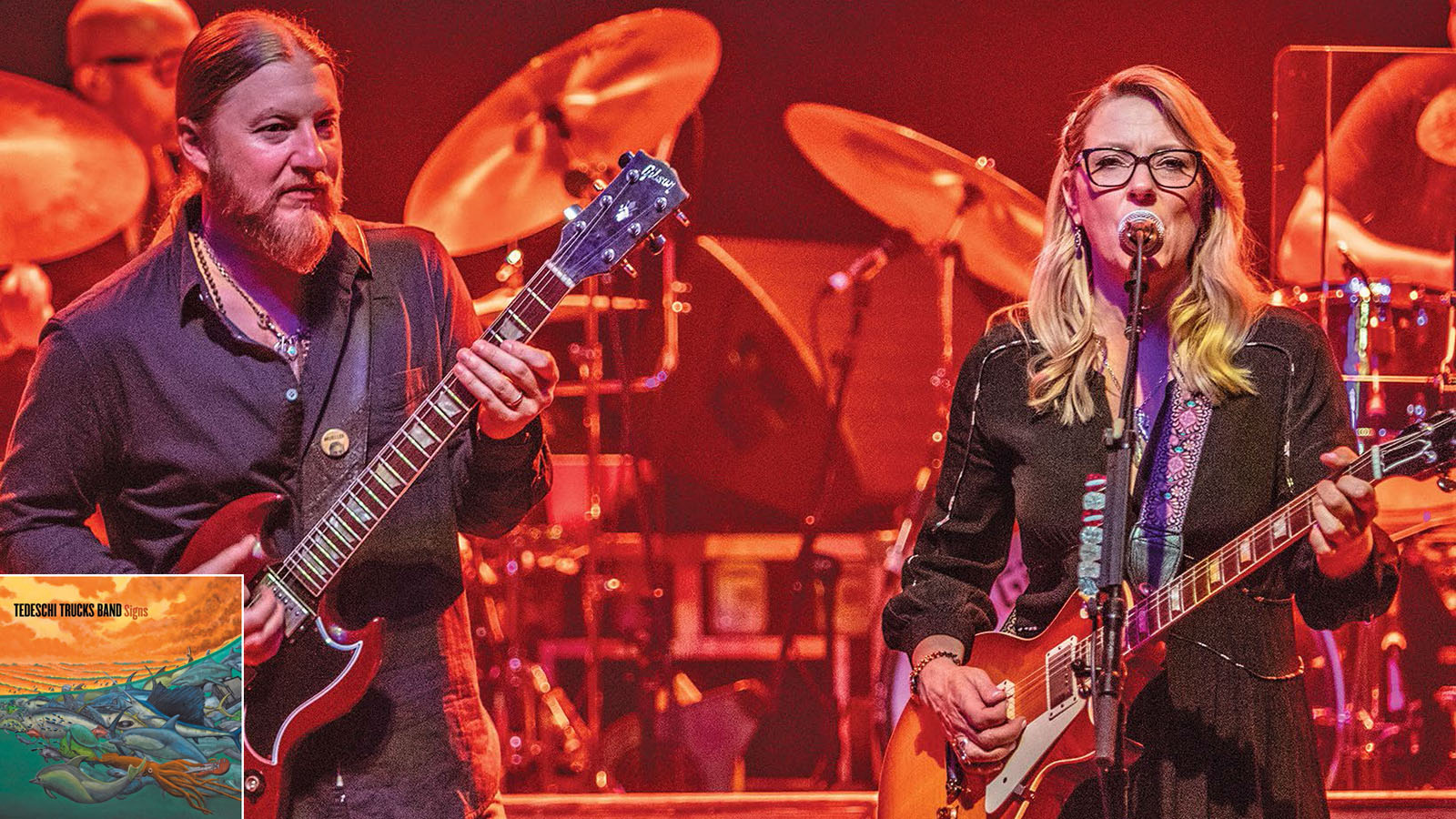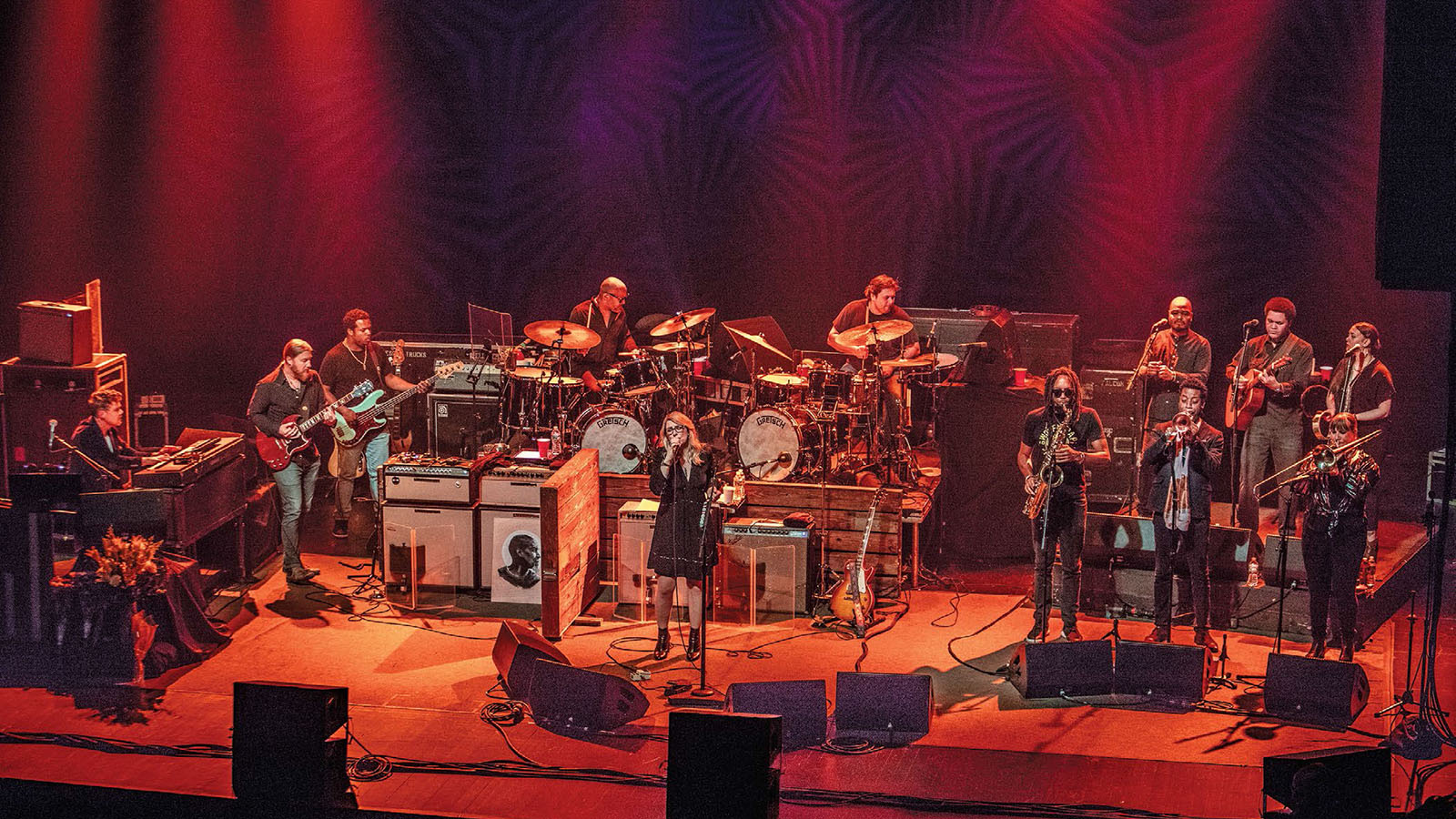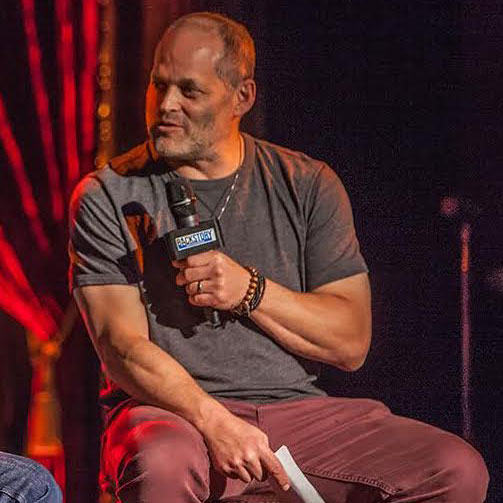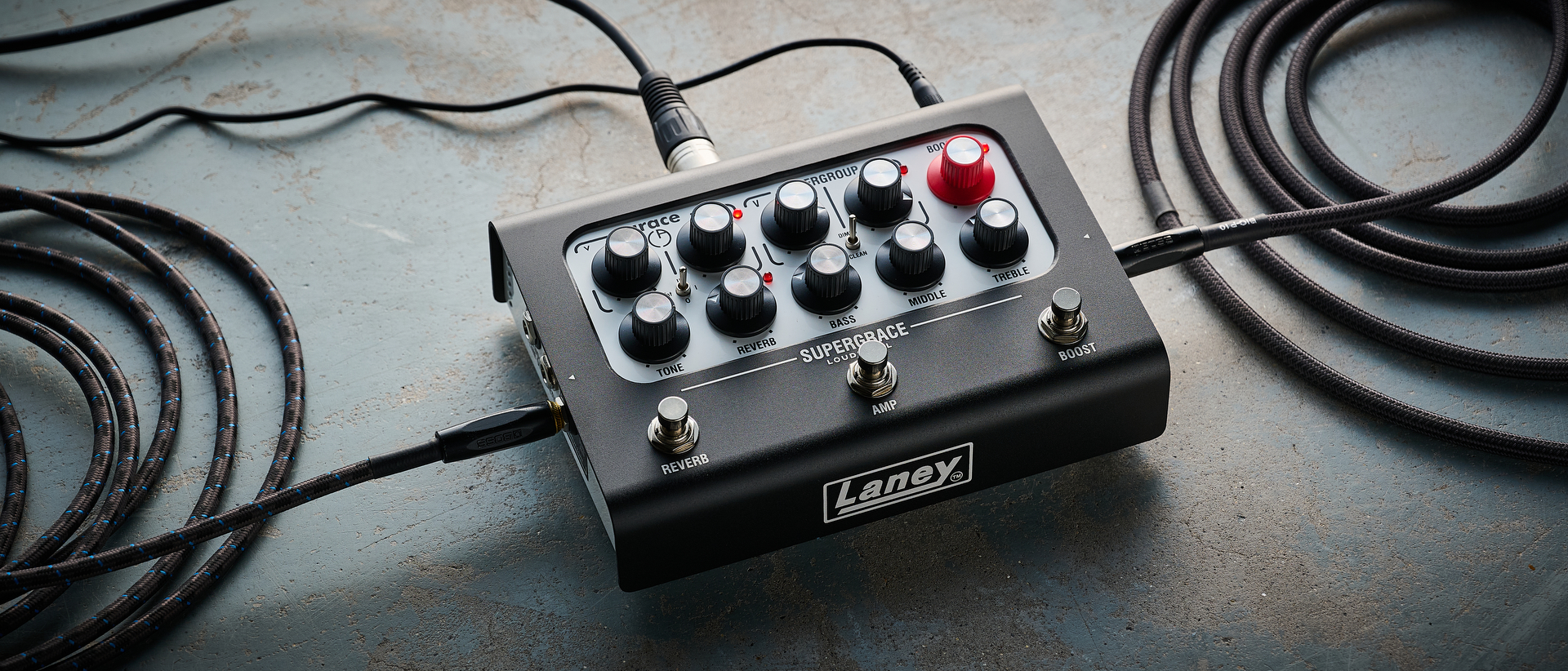
All the latest guitar news, interviews, lessons, reviews, deals and more, direct to your inbox!
You are now subscribed
Your newsletter sign-up was successful
Many of the lyrics on the Tedeschi Trucks Band’s fourth studio album, Signs, address loss, grief, shock and the spark and joy of life that prompt us to carry on in the face of tragedy and adversity. The songs grew out of an extremely difficult period for guitarists Susan Tedeschi and Derek Trucks. In the first few months of 2017, the husband-and-wife bandleaders were rocked by the loss of three musical giants with whom they were personally and professionally very close. In January, Derek’s uncle, Butch Trucks, founding drummer of the Allman Brothers Band, committed suicide. On May 1, guitarist and Hampton Grease Band founder Col. Bruce Hampton collapsed on stage in the midst of his own 70th birthday celebration at Atlanta’s Fox Theatre, surrounded by friends including Trucks, Tedeschi and Warren Haynes. On May 27, Gregg Allman succumbed to liver cancer. The losses rocked the couple to their core.
“These were guys in the center of our musical and personal lives,” Trucks says. “It was jarring to imagine and confront the reality of a world without those characters in it — and you can include Leon Russell, who died in November [2016], and B.B. King, whose [2015] death was the first one that changed the whole scene.”
As they began recording, the Tedeschi Trucks Band were rocked again when keyboardist/flautist Kofi Burbridge suffered a massive cardiac event that almost killed him in June 2017. Burbridge wasn’t just a band member; he was Trucks’ dear friend and longest-running collaborator, having joined the Derek Trucks Band in 1999.
“Kofi’s situation was touch and go,” Trucks says. “The blows seemed to be nonstop. Every day we felt a looming question hanging over us: ‘What’s next?’”
Burbridge’s slow return to health was a massive relief to the band, and his contributions to Signs were musical and personal highlights. As the band launched a tour in the weeks before the album’s release, they announced that Burbridge had had a health setback and was back in the hospital. Then in an awful twist of fate, Burbridge died on February 15, the day Signs was released. A stunned, grief-stricken band continued their tour with heightened passion, placing huge bouquets of flowers in front of the keyboards and a painting of Burbridge on Trucks’ amp. Songs of loss and redemption took on more urgent, deeper meaning, as did declarations of carrying on like “Strengthen What Remains” and “I’m Gonna Be There” as well as fiery declarations of the joy of just being alive, such as the Stones-y “Hard Case.”

Before Burbridge’s death, Trucks reflected on the deaths of Gregg Allman, Butch Trucks and Bruce Hampton and spoke with what became eerie prescience: “Losing such key people made me think about what Gregg and Butch and the other members of the Allman Brothers had to confront with the deaths of Duane [Allman] and Berry [Oakley] when they were in their 20s. They were faced with an impossible situation and they had no choice but to carry on. It’s what we had to do.”
Given all this, it’s no surprise then that Signs is infused with a sense of melancholy and mortality, but also bolstered by a determination to carry on, heads held high, voices singing proud. This is most obvious on “Strengthen What Remains,” a song whose title speaks for itself. The music is stripped down, absent the horn section, yet lush, with a string quartet and Burbridge’s flute bolstering Tedeschi’s yearning, romantic vocal. Burbridge also arranged the strings, and Trucks says that seeing his friend, whose health had been so fragile, making the tune his own was as inspiring as the song’s theme of hanging tough together. It’s a feeling that, of course, became only more pronounced after his death.
All the latest guitar news, interviews, lessons, reviews, deals and more, direct to your inbox!
“The words ‘Strengthen What Remains’ resonated so much to me,” Trucks says. “You have to keep charging. You think back to what was important to these musical inspirations we lost. What were the lessons they taught you? What were the musical things they really believed? That’s what you try to capture and move on with. The spirit of the whole record is wrapped up in processing what it means to lose these people who were pillars in our lives. That was very much in the air. No one can ever occupy the spaces they did, but you try to do your part. How their passing affected me was wanting to do this thing right, to carry on whatever I learned from them.”
One aspect of the Allman Brothers approach that the band hasn’t adopted is the approach to dual lead guitars. But Tedeschi has been stepping to the fore more and more, usually with great, in-the-pocket rhythm playing that finds a place to nestle between the keys, two drums, bass and horns, but also with complementary lines to Trucks and with biting, well-constructed, vocally phrased blues solos.
“I’ve always been fascinated by amazing guitar players who are also amazing singers,” Tedeschi says. “The guys who made me want to play guitar — B.B. and Freddie King, Otis Rush, Magic Sam — are the most incredible players and at the same time incredible singers with gorgeous, big beautiful voices with great phrasing and dynamics. Their ability to do both is amazing and inspiring. They all filled me with so much awe and inspiration that I didn’t even start soloing on stage until I was 25. Since I’m a vocalist I try to sing a melody on the guitar. I don’t try to play guitar riffs; I like it better when someone is saying something. My husband is one of the most melodic soloists. I can’t do what Derek does, but I have my own version; I want my playing to be an extension of my voice, in a way similar to B.B. King, whose playing was his personality.
“I’ll lay out altogether if I don’t hear a guitar part to add or just want to really focus on the vocals. On this album, I didn’t play on ‘Shame’ and ‘All the World’ but did both on ‘When Will I Begin’ and ‘They Don’t Shine,’ for instance. But I’m gaining confidence in my playing and enjoying it more. And it sure helps to be playing with my husband every night. People, of course, focus on his solos, but his rhythm playing is ridiculously wonderful and people don’t often realize how he supports a singer or soloist. It’s very inspiring.”
Lately, Tedeschi also has been getting inspiration from her stage guitar. After years primarily playing a Tele, she favored a D’Angelico, then a 1970 Strat that Trucks brought her as a present. But over the last year, she’s been playing a Gibson Custom Shop Les Paul that belongs to Trucks — and that she basically stumbled onto.
“We were rehearsing, and all my guitars were on the band truck,” she recalls. “Derek has hundreds of guitars upstairs and he told me to go pick one. I saw a Gibson Custom case with Eric Clapton’s signature, opened it up and it was a replica of the Beano guitar he played with John Mayall’s Bluesbreakers. There were only a few made and Eric gave one to Derek. It’s a remarkable instrument, and as soon as I played it, I fell in love and started playing it a ton.”
Trucks played with the Allman Brothers Band from 1999 to 2014, becoming a part of the band’s 45-year Hall of Fame career. Observing them up close helped him fully grasp elements of what made them so special. He still speaks with awe of the passion and drive his uncle Butch brought to every show he played.
“He aired it out and let it rip every time he got on stage,” Trucks says. “And Gregg just dripped with mojo. We’re not trying to replicate them, but we always want to tap into that spirit.”
In the years after the Allman Brothers’ final show in October 2014, the Tedeschi Trucks Band stopped their annual performances at two ABB-run festivals, Wanee and Peach, leaving some fans longing and wondering where they were. Trucks says it was an intentional decision to create a bit of distance.
“The Allman Brothers had an amazing ending, and I wanted to let it lie,” he says. “I know how these things work and didn’t want to be in the same place and have pressure from a promoter to do a half-assed reunion, especially six months or a year after the final show. If we were going to play together again, it had to be special and done right.
“And I feel a bit the same way about playing with Warren. He contributed to this record, and every time we share a stage together is magical, as exciting for us as it is for the audience. I want to keep it that way and let it be a special occasion every time. It feels like it means more that way.”
Even as they keep moving forward, Trucks and company took a step back to the past with the recording of Signs; it was the first time the Tedeschi Trucks Band recorded an album completely on tape, eschewing digital technology almost entirely. The band recorded live to two-inch analog tape, using their original Neve console combined with a Seventies Studer tape machine at Raga Swamp, the studio at their Florida home. It was co-produced by Trucks, Jim Scott (Rolling Stones, Tom Petty) and studio engineer Bobby Tis, who also serves as the band’s stage manager and guitar tech.
“Jim has been making records for decades and he was excited to get back to razor blades cutting tapes,” Trucks says. “We all were, but once the band was there and we started tracking, it was scary at first. We had times where the gear just stopped working in the middle of a great take and we worried if everything was going to melt down. But as soon as we got the first real solid take down and went into the control room and hear what that type of recording does… and it’s so much better.”
Trucks adds that recording straight to tape rather than onto a digital hard drive has a huge impact not only on the sound of the music, but on the actual content. “It added a different depth to the whole approach,” he says.

Modern recording techniques give an artist the sense that everything can be changed, that there are unlimited takes and endless possibilities. Recording live to tape, on the other hand, adds a certain amount of pressure — pressure that was welcomed by Trucks as an excellent focusing device.
“When you’re recording to Pro Tools, you just throw everything at the wall and see what works,” he says. “You’re not sitting around thinking about what you’re doing as much. The tape, I felt, focused everyone in a very different way.”
Tis saw the same thing from his perch in the control room and felt a certain amount of pressure to always be ready. “Once you put the band on the floor, you’d better be ready to go,” he says. “Because they’re going to put out some fire and you have to be ready to capture it.”
Trucks describes the increased focus in simple terms: “When you go to work, you’re going to work. It really focuses your mind. If a take is great, you keep it and if not, you do it again and stuff goes away. When you record over something, it’s gone! It’s a braver process.”
This was a good time for such bravery. With three studio and two live albums and hundreds of shows under their belt since their 2010 debut, the Tedeschi Trucks Band has crafted a fully formed, distinct sound, and it can be heard throughout Signs, starting with the first notes of the opening track, “Signs High Times.” The song kicks off with a burst of Trucks’ slide guitar before kicking into a galloping rhythm. Tedeschi’s impassioned vocal comes in, followed by alternating lines with singers Mike Mattison, Mark Rivers and Alecia Chakour. The horn section comes in to push the song to a new height, pushed by Burbridge’s soaring organ, which gives way to Trucks’ cutting slide solo. It’s a single song that really encapsulates the band’s development of their own distinct sound.
“The core of the band logged a lot of miles and lived a lot of life before we recorded this one, and that allows things to take on a life of their own,” Trucks says. “We’re still mining and pushing and figuring out what this thing is, but tunes like ‘Signs High Times’ and ‘Hard Case’ present themselves and immediately sound like the band. Without much discussion everyone knows what to do. The cohesiveness and formation of a band sound feels more and more like a real thing all the time.”
As with previous albums, Trucks, Tedeschi and Mattison wrote the bulk of the material on Signs with one another and some close friends, including Doyle Bramhall II, with whom Trucks became close when they played together in Eric Clapton’s band, and Haynes, Trucks’ longtime Allman Brothers bandmate. The final song on the album, the acoustic “The Ending,” was written with their friend Oliver Wood of the Wood Brothers. He was on stage with them when Hampton collapsed, and the song tells the story of that strange, celebratory, tragic night. The recording was their songwriting demo, featuring just Wood’s strummed acoustic, Trucks’ stinging Dobro playing and Tedeschi’s voice.
"That’s the only tune that wasn’t recorded properly on tape,” Trucks says. “We had a laptop out and were just writing with a microphone or two. We sat there for an hour and probably wrote 30 verses about the Colonel, then distilled it down to what we ended up with. I don’t know if we’ll ever play that song again. It is what it is, and I didn’t want to touch it. We were all together that night in Atlanta, which was a pretty traumatic thing for everyone involved. I don’t think anyone’s fully unpacked it yet, but that song tries to and it’s real and raw, just like the Colonel, who was as close or closer to us as any family member. He was one of those people who changed the orbit of our lives. You don’t fully recover from losing someone like that.”
Trucks pauses and thinks for a while, trying to put into words what it feels like to live in a world without his uncle, without Gregg Allman, without Leon Russell, B.B. King or Bruce Hampton. What it feels like to have grown up from being a child prodigy into a full-on adult with teen children fronting a band that is now a standard bearer in its own right.
“All of these guys were like a musical safety blanket,” he says. “It was like, no matter how bad shit gets, B.B.’s still out there somewhere holding it down. It’s hard to deal with their losses, but at some point, you have to take responsibility and carry on. There’s never anyone else who occupies those spaces, but you try to do your part and that’s what we’re doing. There’s so much just BS out there, so when you hear something that reminds you of how people used to go about their business, you tether yourself to it.”
The other overriding environmental impact on the writing and recording of Signs was the general atmosphere of the United States over the last few years: a time of intense turmoil, political dissension and social polarization.
“I think everyone is just emotionally drained because the world is sideways and supercharged,” Trucks says. “I don’t think you can do anything right now without feeling that. It’s everywhere. One of the last conversations I had with the Colonel, he said, ‘Well, music’s important again.’ We’re all looking for things where the intention is clean and pure — things that matter.
“The current state of the world makes you drill down a little deeper. I think now is not the time to be super abstract. Sometimes you just need things that are good, solid and pure, and to hear a beautiful voice sing a beautiful song that’s written by somebody who cared about it. It seems like a simple and straightforward thing, and I think people are really craving to hear someone swinging for the fences. They want to hear people just going for it, dedicating their lives to their art and trying to do something great.”
Alan Paul is the author of four books, including Brothers and Sisters: The Allman Brothers Band and the Inside Story of the Album That Defined '70s as well as Texas Flood: The Inside Story of Stevie Ray Vaughan and One Way Out: The Inside Story of the Allman Brothers Band – both of which were both New York Times bestsellers – and Big in China: My Unlikely Adventures Raising a Family, Playing the Blues and Becoming a Star in Beijing, a memoir about raising a family in Beijing and forming a Chinese blues band that toured the nation. He’s been associated with Guitar World for 30 years, serving as managing editor from 1991 to 1996. He plays in two bands: Big in China and Friends of the Brothers (with Guitar World’s Andy Aledort).

